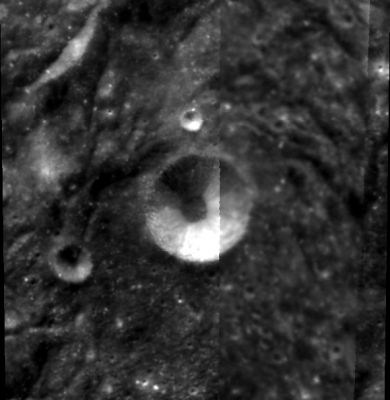Heyrovsky
Contents
[hide]Heyrovsky
(Formerly Drude S)
| Lat: 39.6°S, Long: 95.3°W, Diam: 16 km, Depth: km, Rükl: (farside) |
Images
- Small bowl-shaped crater Heyrovsky was captured by Lunar Orbiter IV, on several frames, such as LO-IV-192-med, in which it could be detected at the "fuzzy" lower half of the frame, south of Mare Orientale, and slightly eastward of the large (officially unnamed) "groove" which runs north of Rydberg, all the way toward the southern rim of Mare Orientale.
- Close up of Heyrovsky near the lower left corner of Lunar Orbiter IV's frame LO-IV-194-h3.
- Research Lunar Orbiter IV photography: Danny Caes
Maps
(LAC zone 123B4) USGS Digital Atlas PDF
Description
Description: Wikipedia
Additional Information
Nomenclature
- Jaroslav Heyrovsky (December 20, 1890 - March 27, 1967) was a Czechoslovakian chemist. was a Czech chemist and inventor. Heyrovský was the inventor of the polarographic method, father of electroanalytical chemistry, and recipient of the Nobel Prize in 1959. The main field of work of Heyrovský was polarography. Heyrovský's invention of the polarographic method dates from 1922 and he concentrated his whole further scientific activity on the development of this new branch of electrochemistry.
- A possible valley (or "groove") located slightly west of Heyrovsky, running southward to the northern part of Rydberg's rim, is unofficially called Vallis Heyrovsky by D.Caes.
LPOD Articles
Bibliography
